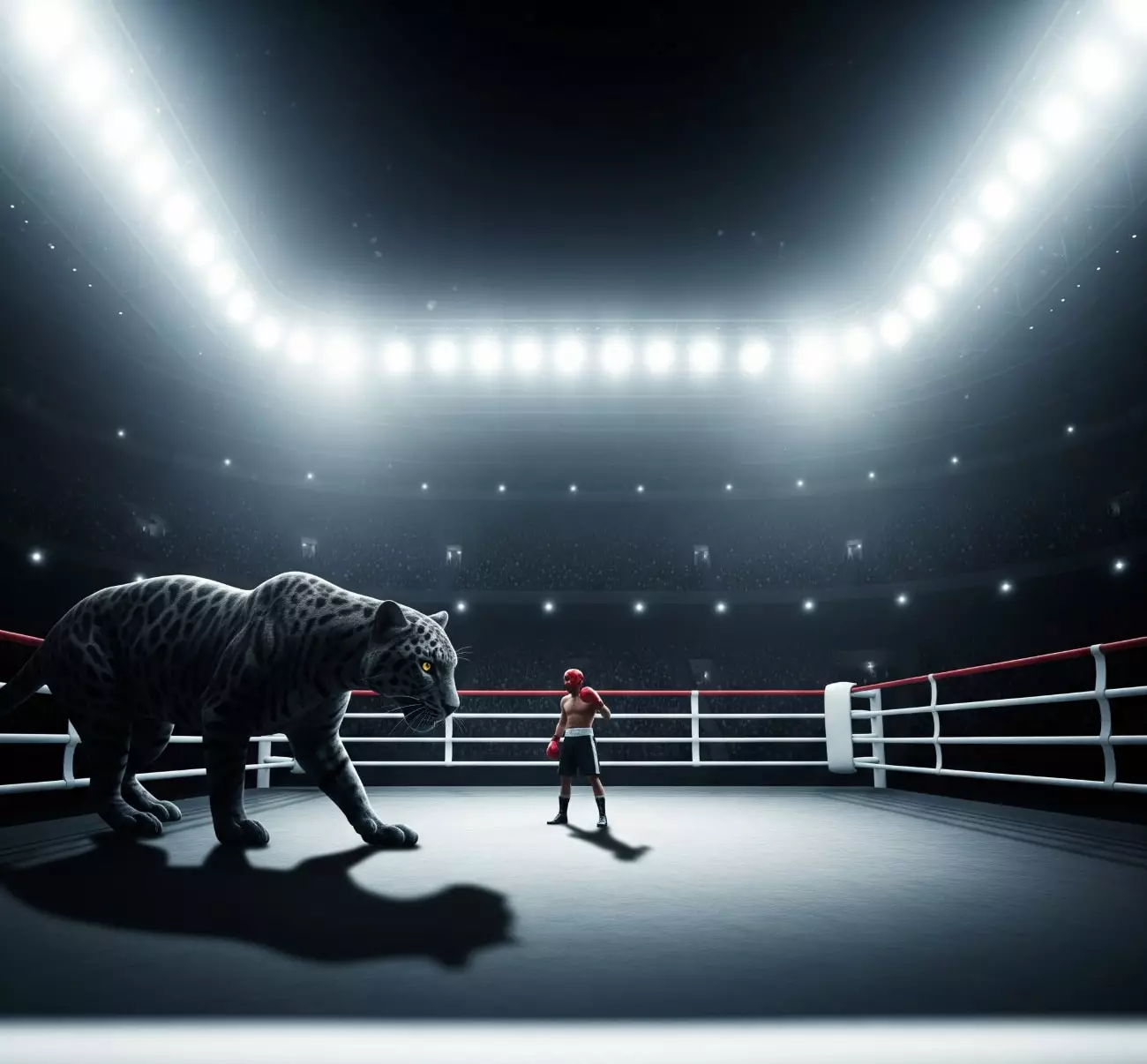The evolution of boxing, a sport steeped in raw competition and unyielding tenacity, seems to have reached a critical juncture. Former champion Shane Mosley weighs in on a contentious issue that resonates with many die-hard fans: the perceived overcompensation of modern fighters who often prioritize points over performance. He argues that the heart of boxing—the thrill of a passionate contest fought for the audience—has been sacrificed for monetary desires, risking the integrity of a sport beloved for its intense rivalries and powerful showdowns.
At the core of Mosley’s discontent lies the observation that many fighters today are more focused on maintaining an undefeated record than showcasing their skills in meaningful bouts. There’s a sentiment that the “predator” mentality—the hunger to overpower and defeat an adversary—is waning. Instead, many boxers embody a tactical, defensive style that prioritizes evading hits and winning by decision over earning fans’ respect through brave confrontations. This mentality leads to a lack of genuine excitement and a disconnect from the very audiences they rely on for their livelihood.
The Influence of Promoters and Matchmaking Dynamics
Mosley’s critique extends beyond the fighters; he places considerable blame on promoters and the matchmaking process, highlighting that many of today’s matchups are anything but competitive. For instance, fights featuring aging veterans against relatively untested prospects create what he calls “slop”—a subpar product for fans who crave excitement. The choice of opponents, which often seem more like business transactions than strategic fights, has significant ramifications on the sporting landscape.
Promoters wield immense power in determining which fights take precedence, yet the selection process often overlooks the essence of competition in favor of financial gain. Exceptional bouts arise when promising talents face challengers of similar caliber, igniting the flames of rivalry that fans want to witness. Instead, fights like Moses Itauma versus the outdated Dillian Whyte or Richardson Hitchins against George Kambosos leave audiences disillusioned and yearning for genuine contests that embody the sport’s true spirit.
The Fear of Losing: A New Era of Boxers
Boxing has historically thrived on the drama of victory and defeat. However, as Mosley points out, today’s fighters seem paralyzed by an intense fear of losing, a factor that has drastically altered the landscape. This obsession with remaining undefeated, at the expense of aggressive tactics, ultimately dilutes the essence of competition. Instead of risking loss to engage in thrilling exchanges, many fighters adopt a strategy designed to protect their records, thereby sacrificing the potential for memorable moments.
This defensive mindset affects not only the fighters but the entire sport. By choosing to prioritize safe performances over engaging in risky endeavors for the sake of entertainment, boxers undermine their own legacies while alienating their fanbase. The dynamic Mosley reminisces about—where fighters couldn’t wait to step into the squared circle and “get after it”—has been replaced by a generation insistent on returning home with a paycheck rather than a story worth telling.
Turki Alalshikh’s Role in Shaping Boxing’s Future
As we look towards the future, Turki Alalshikh’s involvement in developing boxing through events like Riyadh Season offers a glimmer of hope. His recent initiatives aim to reshape the culture of fighting by implementing rules that discourage the defensive style Mosley so vehemently criticizes. Operations that promote the artistry and brutality of boxing over cautious performances could ultimately invigorate the sport and set standards that prioritize captivating contests.
However, much remains to be seen in terms of whether Alalshikh’s musings and intentions will culminate in actual changes within the industry. The true test will be if he adheres to his vision and stands firm against the perils of fighters who resort to a defensive style merely to uphold their pristine records. If fighters can embrace their roles as entertainers—willing to put their skills on the line for the fans—they might be able to restore the fighting spirit that once defined boxing.
A Renaissance for Boxing?
While some fighters showcase the aggression that Mosley idolizes, they are overshadowed by a larger trend of caution among their peers. As boxing navigates through these turbulent times, there is an urgent need for individuals in and outside the ring to recommit to the sport’s foundational principles. The shift toward exciting, well-matched fights crafted for thrill-seeking audiences must be a collaborative effort among fighters, promoters, and fans alike.
If the current generation of fighters aspires to leave a mark on their sport, they must cast aside the fear of losing. Each bout should be approached as an opportunity to engage fervently with their opponents and the audience, embracing the very essence that has captivated fans for generations. Only then can boxing reach new heights and reclaim its rightful place as the ultimate showcase of human tenacity and strength.

